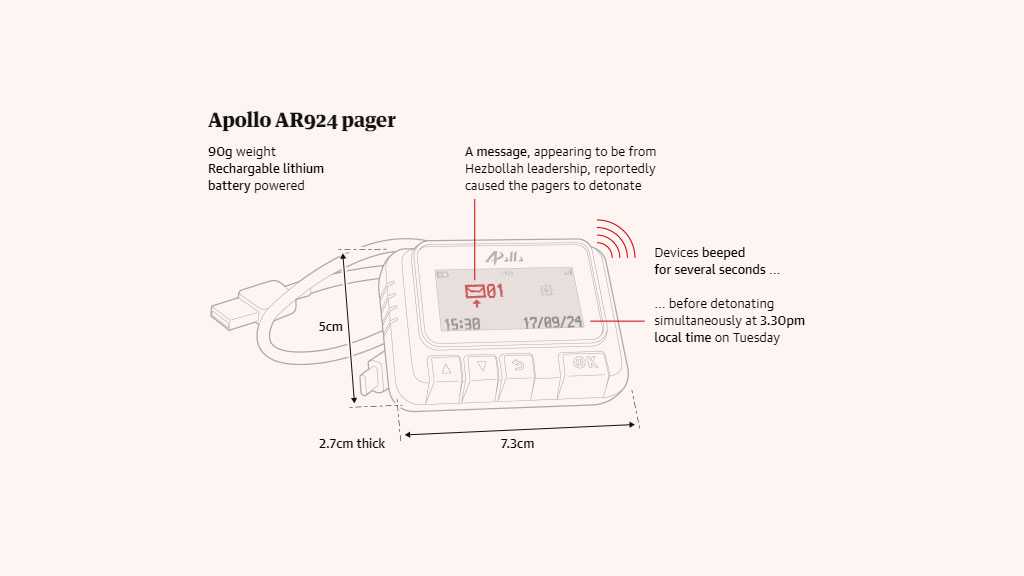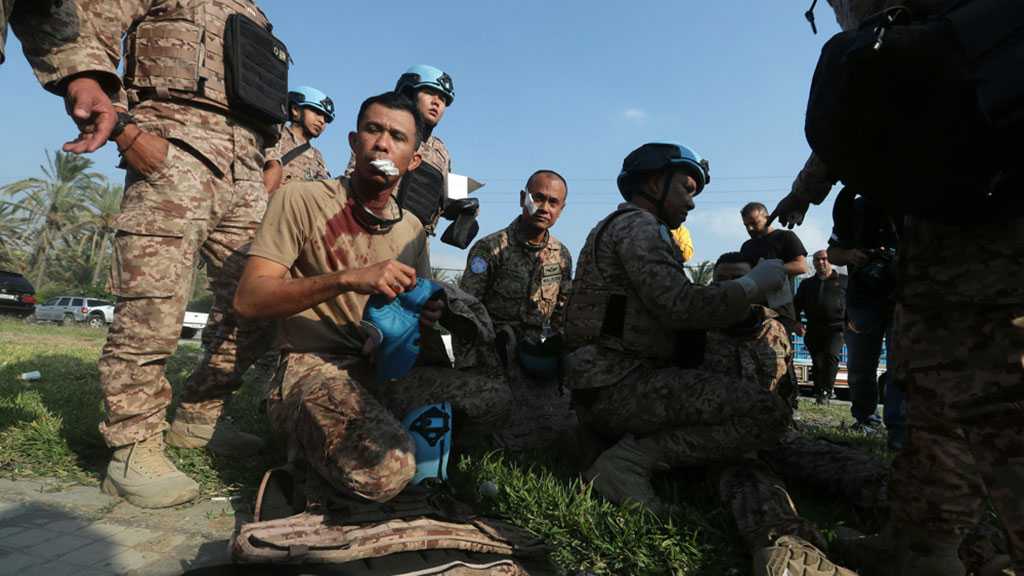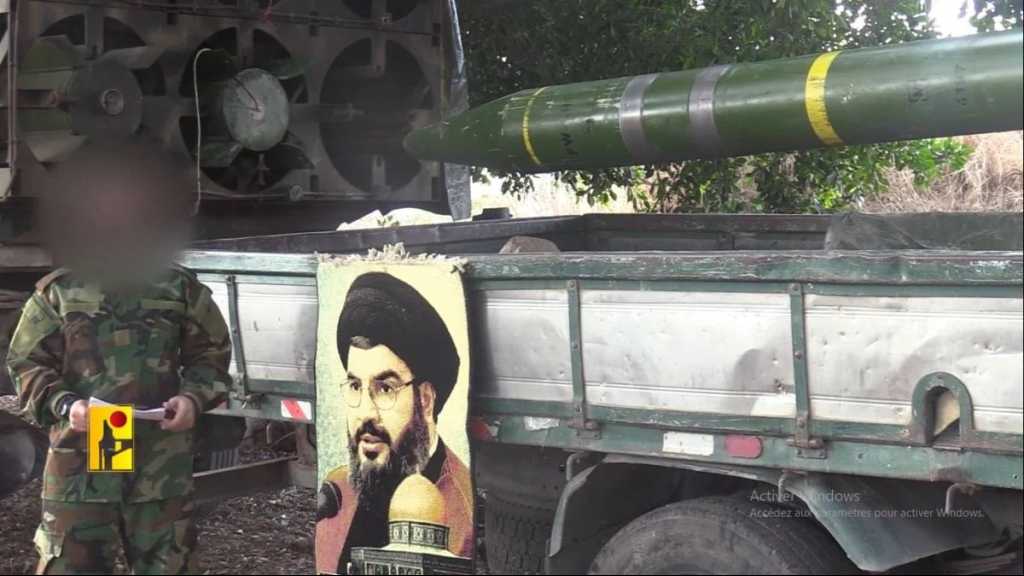
“Israeli” War Crimes: Pagers and Walkie-Talkies Used in Deadly Attack on Lebanese Civilians

By Staff, The Guardian
It may be years before the full story is told of how the coordinated explosions of thousands of pagers and walkie-talkies used by Lebanese people were orchestrated. But, even without “Israel” publicly admitting responsibility, it is clear that the attack must have been carefully planned – however uncertain its consequences.
Experts generally believe a small amount of stable explosive was carefully implanted into each sabotaged device. Alan Woodward, a professor of cybersecurity at Surrey University, said: “There wouldn’t need to be much explosive, as proximity to a human body means it would cause injury even if it was a few grams.”
The first wave of explosions – which occurred from about 3:30 p.m. local time on Tuesday – appear to have been triggered by a special message, implying, Woodward argued, a specific modification of the pagers’ embedded software. This meant it would trigger an explosion when the appropriate message was sent.
It may have been a default setting on the pagers, but the trigger message came with a cynical twist. Eyewitnesses say the pager bleeped, then paused, then detonated – giving enough time for them to be brought closer to the owner’s face – which is why Lebanese doctors reported treating multiple hand and eye injuries after the blast.
Twelve people were martyred and about 2,800 injured in Tuesday’s explosions, and 14 martyred in a second wave of blasts that followed on Wednesday when walkie-talkies started blowing up.
Sabotaging the pagers is not a trivial undertaking, and amounts to a compromise of the supply chain, said Oleg Brodt, a director at Ben-Gurion University’s Cyber Labs. It may even have required either the cooperation of the manufacturers, or for “Israel’s” Mossad spy agency – or whoever carried out the attacks in Lebanon – to have manufactured the doctored pagers themselves, though this is speculative.
The pagers bore the logo of an apparently hapless Taiwanese manufacturer, Gold Apollo. Its founder, Hsu Ching-Kuang, said his company had subcontracted the manufacture of the AR-924 model involved in the attack to the little-known Budapest-based BAC Consulting KFT, a deal he said had been struck three years ago.
From here the trail goes strange, then cold. BAC Consulting was registered in Hungary in 2022 and provided a Budapest address on its website, the same address used by multiple companies. Its chief executive is Cristiana Bársony-Arcidiacono, according to her profile on LinkedIn, and she is described as a graduate of the London School of Economics [LSE] and a native speaker of both Hungarian and Italian.
When the Guardian called, Bársony-Arcidiacono asked how the reporter had got the number and then hung up. However, she confirmed to NBC that her company worked with Gold Apollo. Asked about the pagers and the explosions, Bársony-Arcidiacono said: “I don’t make the pagers. I am just the intermediate [sic]. I think you got it wrong.” Later, Hungarian officials also said the pagers had not been made in the country.
BAC Consulting’s website went down on Wednesday, but internet archives of the site were full of generic pictures of coastlines and vague descriptions of its work without any reference to pager manufacture. Previous posts by Bársony-Arcidiacono on LinkedIn feature pro-Russian, anti-Ukraine comments and a complaint “how does it make no one says anything about US colonization”?
Yoav Gallant, “Israeli” War Minister, called Lloyd Austin, his US counterpart, “several minutes” before the pagers began exploding to tell him that an operation in Lebanon was coming, according to the Axios website. No specifics were shared, and the state department said the US had not been forewarned of the attack plan – though Gallant’s phone call comes close to an acknowledgment of responsibility.
But however sophisticated the planning, the reality is that many civilians were harmed as the pagers exploded. One video captured a pager exploding in a grocery store; others showed adults and children in hospital with severe penetrating traumatic injuries to their heads, bodies and limbs. Human Rights Watch, a monitoring group, said human rights law “prohibits the use of booby traps … precisely to avoid putting civilians at grave risk”.



